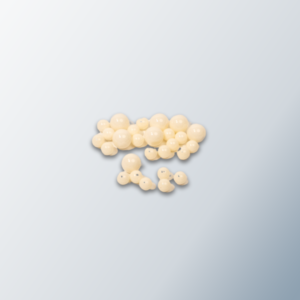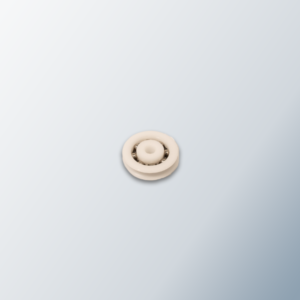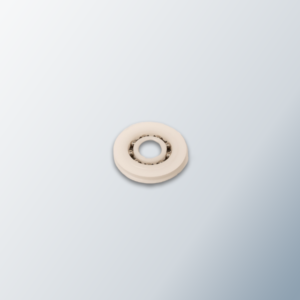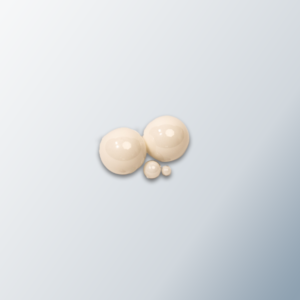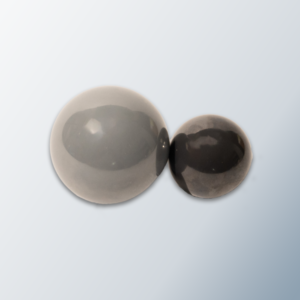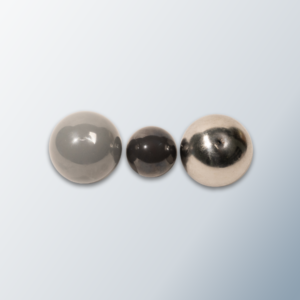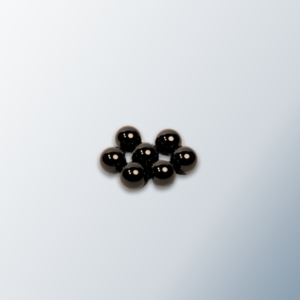Discover the Advantages of Our Ceramic Balls
Our specialty in the field of balls is ceramics. Here you will find various advantages of our ceramic balls:
- 70 % less thermal expansion
- 60 % lower density
- 50 % higher e-module
- reduced centrifugal force
- higher power-plant mounting rigidity
- less friction
- corrosion resistance
- thermal-shock resistance
- higher hardness and resistance
- resistant to strong pressure
- electrically isolating
- unmagnetic
- considerably longer durability
Si3N4, Al2O3 oder ZrO2
Selected mechanical and thermal properties
The table shows the typical material properties and serves as a comparison. It is not absolute engineering data for which we assume legal responsibility.
| Features | Silicon Nitride | Tungston Carbide | Steel |
|---|---|---|---|
| Density | 3.23 g/cm³ | 14.95 g/cm³ | 7.8 g/cm³ |
| Hardness | ~ 76 HRc | ~ 76 HRc | ~ 60-67 HRc |
| Flexural Strength(3 pt. 20°C) | 1000 MPa | 2600 MPa | 2000 MPa (Zug) |
| Compressive Strength | > 4000 MPa | 6200 MPa | 1400 MPa |
| Young's Modulus | 310 GPa | 650 GPa | 205 GPa |
| Poisson's Ratio | 0.27 | 0.22 | 0.29 |
| Fracture Toughness | 7 MPa-√m | 12 MPa-√m | 70 MPa-√m |
| Thermal Expansion | 3.0 x 10-6/°C | 5 x 10-6/°C | 12.5 x 10-6/°C |
| Thermal Conductivity | 22 W/m-°C | 100 W/m-°C | 37 W/m-°C |
| Specific Heat | 0.68 J/g-°C | 0.34 J/g-°C | 0.50 J/g-°C |
| max. Service Temperature | 1000 °C | 450 °C | 180 °C |
| Features | Silicon Nitride |
|---|---|
| Density | 3.23 g/cm³ |
| Hardness | ~ 76 HRc |
| Flexural Strength(3 pt. 20°C) | 2000 MPa (Zug) |
| Compressive Strength | > 4000 MPa |
| Young's Modulus | 310 GPa |
| Poisson's Ratio | 0.27 |
| Fracture Toughness | 7 MPa-√m |
| Thermal Expansion | 3.0 x 10-6/°C |
| Thermal Conductivity | 22 W/m-°C |
| Specific Heat | 0.68 J/g-°C |
| max. Service Temperature | 1000 °C |
| Features | Tungston Carbide |
|---|---|
| Density | 14.95 g/cm³ |
| Hardness | ~ 76 HRc |
| Flexural Strength(3 pt. 20°C) | 2600 MPa |
| Compressive Strength | 6200 MPa |
| Young's Modulus | 650 GPa |
| Poisson's Ratio | 0.22 |
| Fracture Toughness | 12 MPa-√m |
| Thermal Expansion | 5 x 10-6/°C |
| Thermal Conductivity | 100 W/m-°C |
| Specific Heat | 0.34 J/g-°C |
| max. Service Temperature | 450 °C |
| Features | Steel |
|---|---|
| Density | 7.8 g/cm³ |
| Hardness | ~ 60-67 HRc |
| Flexural Strength(3 pt. 20°C) | 2000 MPa (Zug) |
| Compressive Strength | 1400 MPa |
| Young's Modulus | 205 GPa |
| Poisson's Ratio | 0.29 |
| Fracture Toughness | 70 MPa-√m |
| Thermal Expansion | 12.5 x 10-6/°C |
| Thermal Conductivity | 37 W/m-°C |
| Specific Heat | 0.50 J/g-°C |
| max. Service Temperature | 180 °C |



